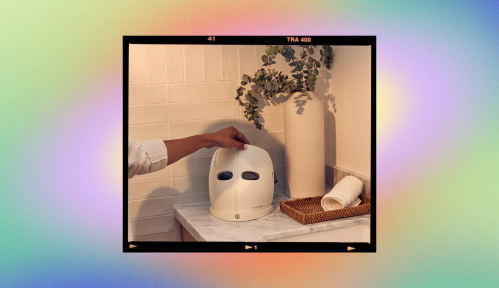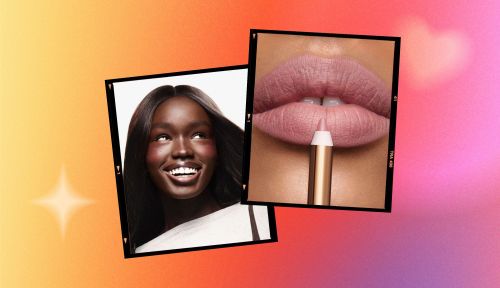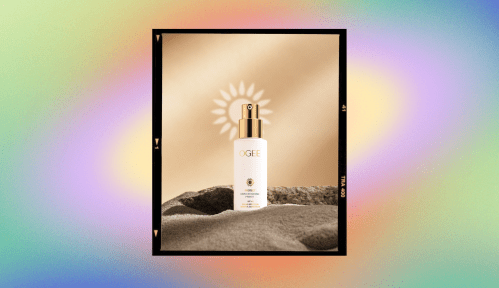The dermatologist-approved secrets for preventing acne from ever happening
I've asked dermatologists the ultimate question: How to prevent acne from showing up in the first place, along with why prevention's better than spot treating.
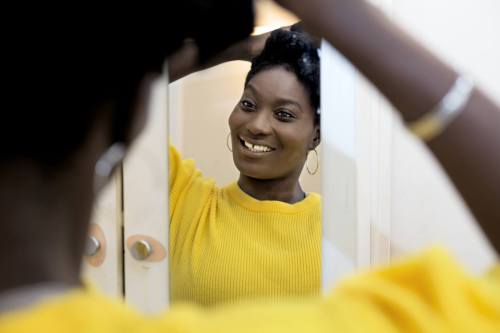
One of the best parts about my job is that I have plenty of dermatologists on speed dial. Since I’m always researching and writing about skin, I love having free reign to pick their brains. My fave topic to talk about? Acne. Their favorite responses to nix it? Spot treatments, light therapy, and skin-care products to squelch the situation. Then, one of the derms I spoke to said something a little different: The best way to treat acne is to stop it from happening in the first place.
Yeah, it sounds obvious. But, despite knowing that the absolute ideal scenario is to prevent acne from ever showing up on your skin, I’ve still managed to have breakouts for more than half of my 31 years on the planet. So, riddle me this: How does one successfully keep acne at bay? Allow me to share with you the derm-approved acne prevention secrets.
Why prevention is the name of the game
“People spot treat, and that is completely off of the course—you want to prevent that,” says Dennis Gross, MD, a board-certified dermatologist and founder of Dr. Dennis Gross Skincare. “Spot treating is fine, but you’ve already lost the battle. The important thing is to use something all over your face on a regular basis, at least in the zones where you’re prone to acne in the first place—that’s the key thing.”
That’s because pimples don’t end once you kill them—their ghost remains to haunt your face in the form of post-inflammatory hyperpigmentation, or acne scars. “Pigmentation, if you look under a microscope, looks like globules—like balls of discoloration,” says Dr. Gross. “It can be really, really hard to break them up, to disintegrate them.” The hard thing to swallow about the spots that are left post-breakout is that topical skin-care products can only do so much—Dr. Gross says you can get rid of about 50 percent of them. “The rest is a challenge,” he admits. “At least you can get that much, and if you stay on it, you’ll get rid of it. But the next step would be laser, because it’s a high-energy, deeply-penetrating treatment.”
California-based dermatologist Shirley Chi, MD, agrees: “If you allow acne to flare, then you have a risk of scarring, which is very difficult to treat. Also, everyone knows that once a pimple starts, it takes a while to go away,” she says. (Have any truer words been spoken?) So, if you can, be diligent to prevent acne from happening in the first place.
How—exactly—you can prevent acne
Now for the nitty gritty. According to the derms I spoke with, preventing acne is all about keeping your pores clear. “It doesn’t matter whether it’s hormonal acne, T-zone acne, the acne that runs in families, cystic acne—it doesn’t matter because they all start because of a blockage in the pore,” says Dr. Gross. “The reason the pore is blocked is because the gland has something wrong with it—they’re producing oils that are too heavy to flow. Normally, human oils should be a little bit heavier than water. But where you get broken out is when those glands are regularly producing oils that are too heavy for its own good—so it’s an oil chemistry problem.” This pretty much just means that you want to normalize your oil production.
The most effective way to keep your pores drama free? Exfoliation. “Cleansing a few times a week with salicylic acid cleansers unclogs pores and diminishes the size of oil glands,” says Robert Anolik, MD, a New York-based dermatologist. “This type of peel ingredient is particularly helpful for acne prevention because it is lipophilic, meaning it is drawn toward the oil in the glands, unclogging what’s in its path.”
Dr. Gross also recommends using a blend of exfoliating acids in your regimen—AHAs and BHAs. “For alpha, I like glycolic, citric, lactic, mandelic, and then for beta I use salicylic acid,” he says. “I like a mix of alpha and beta because they all do something a little different. And also, I’m a believer in getting multiple acids that combine to a high concentration, rather than just using one single acid at a high concentration. Like five acids at three percent rather than one asset at 15—if you do it that way, it’s more effective and there’s no downtime, no redness, and no irritation. It’s the funny thing about skin.”
Then, there’s retinol. “Nightly retinol is another important prevention strategy because it helps pores grow normally, limiting the buildup of dead skin cells which contribute to the clogging of pores,” says Dr. Anolik. “It’s why you see far fewer whiteheads and blackheads when someone uses retinols routinely.” Also key? Being diligent about facial cleansing. “Make sure to wash your face twice daily to remove makeup, dirt, oils, and pollution that we’re exposed to,” says Dr. Chi. There’s the derm-approved prevention plan. Keep scrolling to shop acne-preventing must-haves below.
Acne preventers
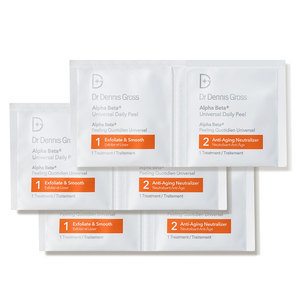
Dr. Dennis Gross Alpha Beta Universal Daily Peel $88
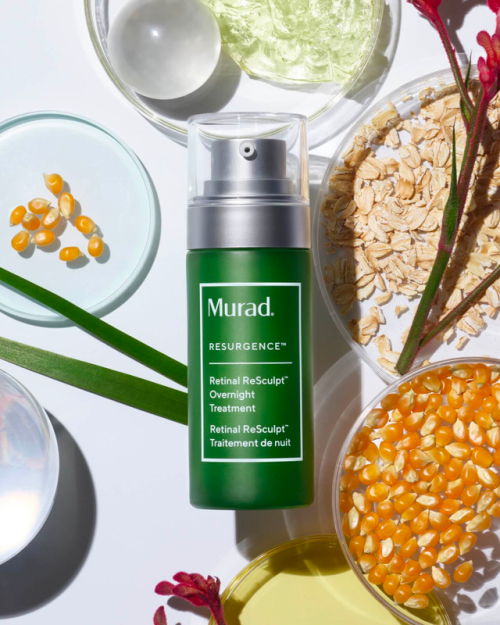
Murad Clarifying Cleanser $30

RoC Retinol Correxion Deep Wrinkle Night Cream $25
Hold up, are blackheads the same thing as acne? And here’s just how to reduce your pore size if that’s something that you’re interested in doing.
Sign up for the Well+Good SHOP Newsletter
Get exclusive deals on wellness, beauty, fitness, and food products that have been hand-picked by our editors.
Got it, you've been added to our email list.

